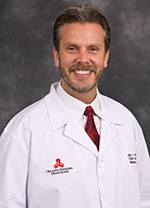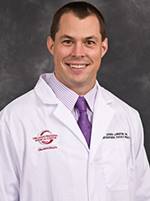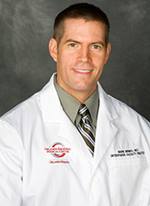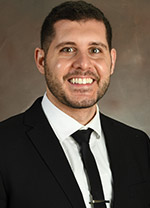Orthopedic Trauma Fellowship
Overview
This one year program is under the direction of George J. Haidukewych, MD and Co-Director, Joshua R. Langford, MD. It offers a comprehensive approach to the diagnosis, treatment and post-operative rehabilitation of adult orthopedic trauma at Orlando Regional Medical Center, Florida’s busiest orthopedic Level One trauma center.
The fellow will be exposed to and participate in all aspects of trauma surgery including complex acetabular and pelvic fracture surgery, as well as advanced techniques in extremity trauma. The fellowship will run concurrently with the orthopedic surgery residency training program. There are four full-time orthopedic trauma fellowship trained faculty that participate in the education of the orthopedic surgery residents.
George J. Haidukewych, MD
Academic Chairman, Residency
Program Director, Trauma Fellowship Director,
Department of Orthopedics
Goals and Objectives
The goals and objectives of the orthopedic trauma fellowship are to help advance the orthopedic surgeon’s understanding of the treatment of severely injured polytraumatized patients with significant musculoskeletal injuries. This includes how these injuries affect the overall well-being of the patient, understanding the treatment of multiply injured patients in a critical care setting; the timing and titration of necessary musculoskeletal surgery and the effects it may have on the overall well-being of the patient. In addition to further complimenting their didactic education, attempts to advance their psycho motor skill set will be made. “Fine tuning” their ability to manage complicated articular fractures of the upper and lower extremity as well as management of significant pelvic ring disruptions and acetabular fractures will be emphasized.
The goals and objectives of the fellowship will include:
- Evaluation of injured patients both isolated and polytraumatized.
- Perform a thorough musculoskeletal exam of the polytraumatized injured patient.
- Order appropriate studies of injured patients.
- Determine the diagnosis of the patient.
- Refine surgical skills with management of more simple fracture patterns.
- Review the appropriate treatment of each patient as they have presented in a retrospective fashion in a fracture conference.
- Create a treatment plan for each patient as they arrive.
- Discern the principles of acute fracture management, both operative and non-operative and how these apply to each patient.
- Carryout the treatment plan in a competent manner.
- Communicate with other services including trauma surgery, neurosurgery, plastic surgery, to delineate the care needed to treat their musculoskeletal injuries and facilitate their best outcome.
- To learn to appropriately diagnose and manage the musculoskeletal complications that occur in the multiply injured patient.
- To discern the treatment plan in cases requiring surgical intervention with preoperative, intraoperative and post-operative planning.
- To learn to appropriately manage the multi-trauma patient with more severe periarticular fractures including but not limited to articular injury to the shoulder, elbow, wrist, hip, knee and ankle as well as pelvis and acetabulum.
- Develop a psycho motor skill set to perform difficult and invasive procedures throughout the body including the pelvis and acetabulum.
- Learn management of common post traumatic conditions such as, limb lengthening discrepancy, recurring infection, deformity and severe post traumatic arthritis
Faculty

George J. Haidukeywych, MD
Program Director

Joshua R. Langford, MD
Assistant Program Director

Elizabeth Jacobs, MD

Mark Munro, MD


